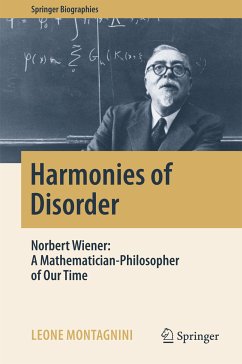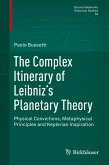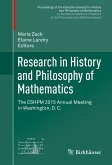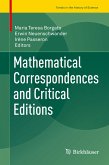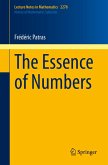Dieser Download kann aus rechtlichen Gründen nur mit Rechnungsadresse in A, B, BG, CY, CZ, D, DK, EW, E, FIN, F, GR, HR, H, IRL, I, LT, L, LR, M, NL, PL, P, R, S, SLO, SK ausgeliefert werden.
"Norbert Wiener was one of the great geniuses of the 20th century. Harmonies of disorder is a brilliant biography that carefully details every aspect of Wiener's background and contributions without using any equations, making it accessible to general readers with an interest in science and its history ... . The reader is privileged to see the thinking of a great genius and how significant developments of the 20th century came about. Every comprehensive library should have this book." (Computing Reviews, January, 2018)
"The whole book is very readable and gives important insightsinto the intellectual development of an outstanding thinker. Many links are discussed with respect to philosophy, social sciences, and physics and many well-known characters of the computer age like von Neumann and Wiener's contacts with them are discussed. The book comprises an important step in understanding Wiener's thinking." (Thomas Sonar, zbMATH 1377.01002, 2018)
"This is a thoughtful portrait of Norbert Wiener and well worth reading. The author provides a complete bibliography of Wiener's published work as well as a large bibliography of related material." (William J. Satzer, MAA Reviews, October, 2017)

